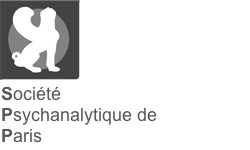|
Résumé :
|
This article explores through a psychoanalytical lens the character of Achilles in Homer's Iliad, the matrix behind the Western conception of heroism. The contribution reveals the psychological link binding the words and acts of the most valiant of warriors in Antiquity, which is situated in myth and termed “the Eros of the absolute.” The paroxystic ideality underlying the aforementioned myth, which is rooted in the anthropological need to believe, is at the origin of Achilles’ legendary μῆνις, that is, the flood of rage triggered by contests for supremacy, aggravated by the loss of his war comrade, aroused by the drama of aging and death, and then transfigured through song and memory. The main claim of the author is that Iliad, despite its seeming lack of attention to interiority, is launched by the archetypal emotion of wrath and owes its appeal to its hero's embrace of heroic idealism in an excessive, radical and absolute way that results in a captivating narcissism and sadomasochistic antithesis of ideality. This argument leads to the conclusion that Homer is the Father of the “primitive horde” of affects.
|





